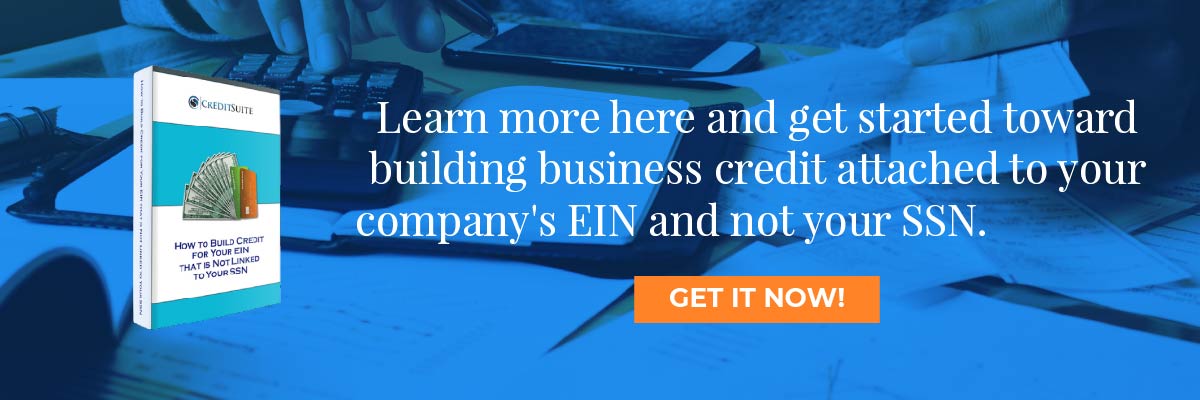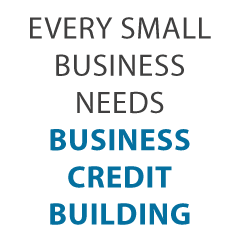- Connect With Us!
- (877) 600-2487
- info@creditsuite.com
How to Set Up a New Business in Washington DC
Published By Janet Gershen-Siegel at June 9th, 2019
Starting a Business in Washington DC
A new business in Washington DC is not out of reach. So have you been wondering: just how do I start a business in Washington DC? And more importantly, can I do so no matter what the economic conditions are? Can I start a new business in Washington DC during a recession?
New Business in Washington DC: Advantages and Disadvantages
Fast Company says Washington DC is a good place to start a new business, per a 2010 article. There is the advantage of having the federal government right there. The area also has a rather stable economy. And there is also a vibrant angel investing community.
Another advantage is how close it is to highly educated and available workers in Maryland and also Virginia.
A 2016 article by the Small Business & Entrepreneurship Council put Washington DC at number three of 20 metropolitan areas to start a business. This was a reprint of much of an article by CNBC. However, Business Insider did not rank the nation’s capital in 2016.
Forbes and Fit Small Business did not rank the District of Columbia in 2018.
Keep in mind, of course, all of these websites have differing criteria.
Recent Data
According to the 2019 Inc. Surge Cities Index, Washington DC clocks in at a fairly impressive number 19. Rate of entrepreneurship and high growth company density are both very good. But wage growth and early stage funding deals lag behind the average. Net business creation and job creation are also behind the middle of the pack.
Amazon is putting a new headquarters in nearby Crystal City, Virginia, so expect much of the area’s top talent to be siphoned off there.
Only you can decide if it is worth it to start a new business in Washington DC. And remember: the federal government and Amazon will be your competition when it comes to hiring.
Start a New Business in Washington DC – Washington DC Top Industries
Per Trip Savvy, the ten largest employers in the District of Columbia are in the health care, hospitality, and technical consulting area. More top industries in Washington DC are educational, groceries, accounting, and information technology. Yet more Washington DC top industries are engineering, and communications industries. Professional and technical services are large industries.
But the largest employer in Washington DC of course isn’t a company – it’s the federal government.
Start a New Business in Washington DC – Washington DC Business Ideas
Smart business owners can find new opportunities. Work with the bigger industries in the District. Offer goods or services like computer services such as programming and data. Another idea is trucking for any industry. More ideas for a new business in Washington DC are transportation, food service, development and also distribution of safety equipment. Yet another new business idea is analysis for accounting firms, law firms, and also lobbyists.
Here is how to start a new business in Washington DC.
Start a New Business in Washington DC – Washington DC New Business Requirements
Register a Business Name
Register a trade name at the official Washington DC government website.
Business Permits and Licenses
You can find all basic business licenses on the Business Licensing Forms page.
Monetary penalties for not gaining a business license before starting business are more than the standard business license application fees and renewal fees. So it pays to get all licensing.
For businesses which will not have a specialized profession such as attorneys or physicians, they want the Basic Business License or General Business License. These terms are used interchangeably by the municipal government. There is an annual fee for the Basic Business License and it is also assessed twice a year.
There is an application fee with an activity fee which is also due at the time of submitting an application. There is a 10% technology fee that also applies.
For a list of specialized professions and their licenses, visit the Washington DC Professions webpage on the official city government website.
General Business License Applications
Apply for and renew a General Business License directly with the Washington DC official city government website municipal body. Or, if a Washington DC business owner prefers, they may go to the office in person to the:
Department of Consumer and Regulatory Affairs
1100 4th Street SW
Washington, D.C. 20024
Lastly, a Washington DC business owner may also call (202) 442-4400 and request that an application be faxed or mailed to them.
License Application Requirements
A Washington DC business owner should gather the following information for their application.
Start with the language preferred and business type. The choices are sole proprietor, partnership, limited liability corporation, for-profit corporation, or a non-profit corporation.
Also provide the name of the business owner and their Federal Employee ID Number, if any. In addition, provide the Social Security Number of the business owner and also the property owner. More necessary data is the trade name and also the number of employees.
Add the business address and the officers, partners, and members’ names, addresses, and contact phone numbers. Also include the business location. Add the signatures of business owner(s), partner(s), member(s) and property owner(s) and also the dates.
If weights and measures will be utilized for a business, contact the Office of Weights and Measures at (202) 698-2130.
Start a New Business in Washington DC – Business Registration
Be sure to go to the DC.gov website and look for Business Licensing and Registration.
Tax Registration
Go here to find out how to get your tax ID number.
Start a New Business in Washington DC – Virtual Offices
Alliance offers Washington DC virtual business office space. Compare prices for Washington DC virtual business offices at DaVinci and also at Regus.
Start a New Business in Washington DC – Build Business Credit
Small business credit is credit in a business’s name. It doesn’t link to an entrepreneur’s individual credit, not even when the owner is a sole proprietor and the sole employee of the company.
Accordingly, an entrepreneur’s business and consumer credit scores can be very different.
The Benefits
Since small business credit is distinct from consumer, it helps to protect an entrepreneur’s personal assets, in the event of a lawsuit or business bankruptcy.
Also, with two distinct credit scores, an entrepreneur can get two separate cards from the same vendor. This effectively doubles purchasing power.
Another advantage is that even startup ventures can do this. Heading to a bank for a business loan can be a recipe for frustration. But building company credit, when done properly, is a plan for success.
Personal credit scores depend on payments but also other components like credit usage percentages.
But for business credit, the scores actually merely hinge on whether a small business pays its debts on a timely basis.
Learn more here and get started toward building business credit attached to your company’s EIN and not your SSN.
The Process
Building business credit is a process, and it does not happen without effort. A small business needs to actively work to build small business credit.
Nevertheless, it can be done readily and quickly, and it is much speedier than developing individual credit scores.
Merchants are a big part of this process.
Accomplishing the steps out of sequence will result in repetitive rejections. Nobody can start at the top with business credit. For example, you can’t start with retail or cash credit from your bank. If you do, you’ll get a denial 100% of the time.
Start a New Business in Washington DC – Business Fundability
A small business needs to be fundable to credit issuers and merchants.
Therefore, a small business will need a professional-looking web site and email address. And it needs to have website hosting bought from a vendor such as GoDaddy.
In addition, business phone and fax numbers ought to have a listing on ListYourself.net.
Likewise, the company telephone number should be toll-free (800 exchange or the equivalent).
A business will also need a bank account dedicated solely to it, and it needs to have every one of the licenses necessary for operation.
Learn more here and get started toward building business credit attached to your company’s EIN and not your SSN.
Dealing with the IRS
Visit the IRS web site and acquire an EIN for the business. They’re free of charge. Pick a business entity such as corporation, LLC, etc.
A company can begin as a sole proprietor. But they will probably wish to switch to a kind of corporation or an LLC.
This is in order to decrease risk. And it will make the most of tax benefits.
A business entity will matter when it involves tax obligations and liability in the event of litigation. A sole proprietorship means the owner is it when it comes to liability and taxes. Nobody else is responsible.
Sole Proprietors Take Note
If you operate a small business as a sole proprietor, then at the very least be sure to file for a DBA. This is ‘doing business as’ status.
If you do not, then your personal name is the same as the company name. Consequently, you can end up being directly accountable for all company debts.
In addition, per the Internal Revenue Service, using this structure there is a 1 in 7 possibility of an IRS audit. There is a 1 in 50 probability for corporations! Prevent confusion and significantly reduce the chances of an IRS audit simultaneously.
Starting Off the Business Credit Reporting Process
Start at the D&B website and obtain a free D-U-N-S number. A D-U-N-S number is how D&B gets a company into their system, to produce a PAYDEX score. If there is no D-U-N-S number, then there is no record and no PAYDEX score.
Once in D&B’s system, search Equifax and Experian’s websites for the small business. You can do this at fastcs.wpengine.com/reports. If there is a record with them, check it for correctness and completeness. If there are no records with them, go to the next step in the process.
In this way, Experian and Equifax will have something to report on.
Vendor Credit Tier
First you need to establish trade lines that report. This is also known as the vendor credit tier. Then you’ll have an established credit profile, and you’ll get a business credit score.
And with an established business credit profile and score you can start to get credit in the retail and cash credit tiers.
These sorts of accounts have the tendency to be for the things bought all the time, like marketing materials, shipping boxes, outdoor work wear, ink and toner, and office furniture.
But to start with, what is trade credit? These trade lines are credit issuers who will give you initial credit when you have none now. Terms are commonly Net 30, versus revolving.
So, if you get an approval for $1,000 in vendor credit and use all of it, you will need to pay that money back in a set term, like within 30 days on a Net 30 account.
Details
Net 30 accounts must be paid in full within 30 days. 60 accounts have to be paid fully within 60 days. In contrast to with revolving accounts, you have a set time when you have to pay back what you borrowed or the credit you made use of.
To launch your business credit profile the proper way, you ought to get approval for vendor accounts that report to the business credit reporting agencies. When that’s done, you can then use the credit.
Then repay what you used, and the account is on report to Dun & Bradstreet, Experian, or Equifax.
Vendor Credit Tier – It Helps
Not every vendor can help like true starter credit can. These are merchants that will grant an approval with marginal effort. You also want them to be reporting to one or more of the big three CRAs: Dun & Bradstreet, Equifax, and Experian.
You want 5 to 8 of these to move onto the next step, which is the retail credit tier. But you may need to apply more than one time to these vendors. So, this is to demonstrate you are responsible and will pay on time.
Retail Credit Tier
Once there are 5 to 8 or more vendor trade accounts reporting to at least one of the CRAs, then move to the retail credit tier. These are businesses such as Office Depot and Staples.
Only use your SSN and date of birth on these applications for verification purposes. For credit checks and guarantees, use the business’s EIN on these credit applications.
One instance is Lowe’s. They report to D&B, Equifax and Business Experian. They need to see a D-U-N-S and a PAYDEX score of 78 or more.
Fleet Credit Tier
Are there 8 to 10 accounts reporting? Then move onto the fleet credit tier. These are businesses like BP and Conoco. Use this credit to buy fuel, and to fix, and take care of vehicles. Just use your SSN and date of birth on these applications for verification purposes. For credit checks and guarantees, make certain to apply using the business’s EIN.
One such example is Shell. They report to D&B and Business Experian. They need to see a PAYDEX Score of 78 or better and a 411 business telephone listing.
Shell might say they want a specific amount of time in business or profits. But if you already have enough vendor accounts, that won’t be necessary. And you can still get approval.
Learn more here and get started toward building business credit attached to your company’s EIN and not your SSN.
Cash Credit Tier
Have you been responsibly handling the credit you’ve gotten up to this point? Then progress to the cash credit tier. These are companies such as Visa and MasterCard. Just use your Social Security Number and date of birth on these applications for verification purposes. For credit checks and guarantees, use your EIN instead.
One such example is the Fuelman MasterCard. They report to D&B and Equifax Business. They need to see a PAYDEX Score of 78 or better. And they also want you to have 10 trade lines reporting on your D&B report.
Plus, they want to see a $10,000 high credit limit reporting on your D&B report (other account reporting).
Plus, they want you to have an established small business.
These are businesses such as Walmart and Dell, and also Home Depot, BP, and Racetrac. These are frequently MasterCard credit cards. If you have 14 trade accounts reporting, then these are doable.
Monitor Your Business Credit
Know what is happening with your credit. Make sure it is being reported and take care of any mistakes ASAP. Get in the practice of checking credit reports and digging into the specifics, and not just the scores.
We can help you monitor business credit at Experian and D&B for only $24/month. See: fastcs.wpengine.com/monitoring.
Update Your Record
Update the data if there are mistakes or the info is incomplete.
Fix Your Business Credit
So, what’s all this monitoring for? It’s to contest any inaccuracies in your records. Mistakes in your credit report(s) can be fixed. But the CRAs typically want you to dispute in a particular way.
Disputes
Disputing credit report errors typically means you mail a paper letter with copies of any proof of payment with it. These are documents like receipts and cancelled checks. Never send the originals. Always mail copies and retain the originals.
Fixing credit report mistakes also means you specifically spell out any charges you challenge. Make your dispute letter as crystal clear as possible. Be specific about the issues with your report. Use certified mail so that you will have proof that you mailed in your dispute.
A Word about Building Business Credit
Always use credit smartly! Never borrow more than what you can pay off. Keep track of balances and deadlines for repayments. Paying on schedule and fully will do more to increase business credit scores than virtually anything else.
Establishing company credit pays. Great business credit scores help a small business get loans. Your loan provider knows the business can pay its debts. They understand the business is bona fide.
The business’s EIN attaches to high scores and credit issuers won’t feel the need to require a personal guarantee.
Business credit is an asset which can help your business for years to come.
Learn more here and get started toward opening a new business in Washington DC.
Want to start a new business someplace else in America? Then check out our handy guide to starting a business in any state in the country.
Washington, DC’s Response to COVID-19
Here’s what Washington, DC is doing about COVID-19. On March 17, Mayor Muriel Bowser announced that the SBA has accepted the District of Columbia’s declaration for assistance in the form of economic injury disaster loans following the advent of COVID-19. DC businesses can start applying now.
While the SBA directly administers this loan program, the Department of Small and Local Business Development (DSLBD), led by Director Kristi Whitfield, will work with the SBA on behalf of the District of Columbia.

 " class="attachment-blog-single size-blog-single wp-post-image" alt="Get Business Credit Cards for New Businesses Credit Suite-Business Line of Credit Decoded" title="Get Business Credit Cards for New Businesses">>
" class="attachment-blog-single size-blog-single wp-post-image" alt="Get Business Credit Cards for New Businesses Credit Suite-Business Line of Credit Decoded" title="Get Business Credit Cards for New Businesses">>
